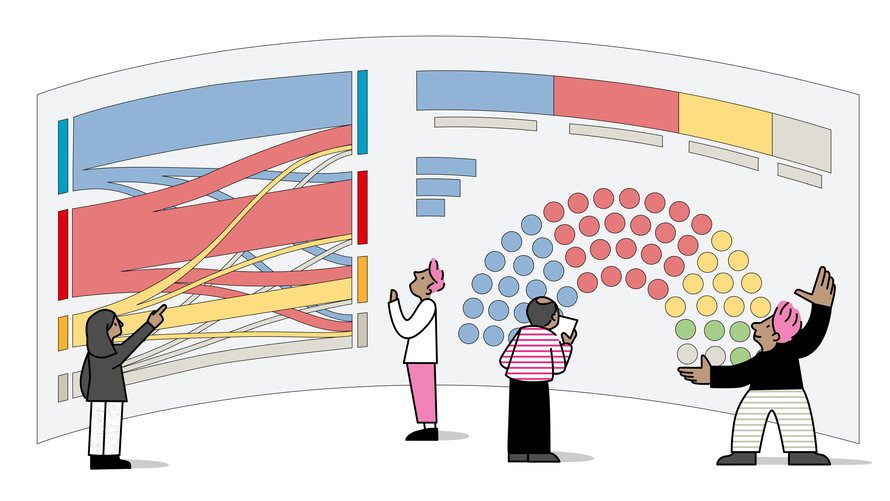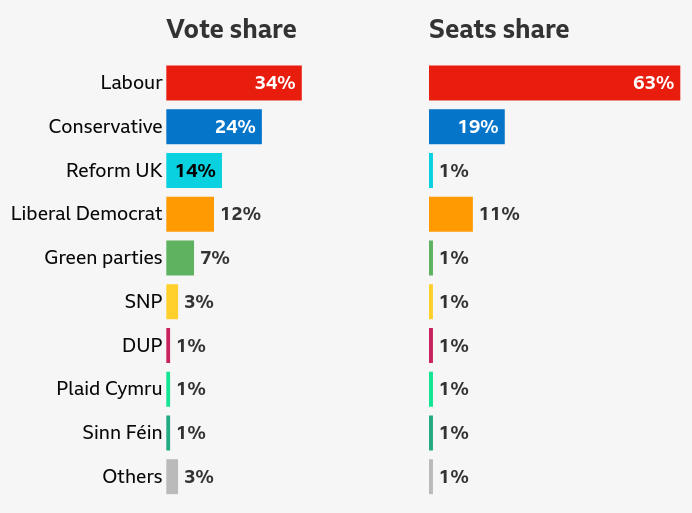
2024 General Election: Disproportionality
With the 2024 general election results now in, the outcomes largely align with pre-election polls. Reform UK secured a significant share of the vote, leading to a split on the right, while many pollsters had overestimated Labour’s performance.
Labour’s results were notably lower than expected, surprising many observers with their reduced vote share. The actual percentage was significantly below predictions.
See for yourself:

During the coverage on Sky News, a panel with various political perspectives discussed the results. Andy Burnham pointed out that the party system has evolved, suggesting it might be time to reconsider the electoral system. He noted that the grassroots support within Labour for electoral reform is growing, a viewpoint not yet embraced by the mainstream party.
The current voting system, as illustrated by the recent results, raises questions about its effectiveness in representing the electorate. The Electoral Reform Society provides several insightful articles on potential changes, particularly their observations on proportional representation. These analyses highlight the significant differences that could arise with such a system.
The Right
The Conservative Party, benefiting from the 2019 entryism, has historically resisted changing the voting system. However, the attempt to apply a proportional approach within the current system has led to increased fragmentation within the party.
Figures like Nigel Farage, instrumental in the Brexit referendum, could potentially shift the political conversation towards electoral reform. The influence of right-wing policies from other parties like UKIP & Reform being adopted to avoid vote spitting from 2015 to 2019 underscores the need for a change in how representation is achieved.
The Case for Change
While First-Past-The-Post (FPTP) is praised for producing stable governments, recent years suggest that this stability may be overstated. Considering the political landscape of the last 14 years, it might be time to explore alternatives.
Supporting parties that advocate for electoral reform could be a step towards a more representative system, similar to the changes adopted in New Zealand.